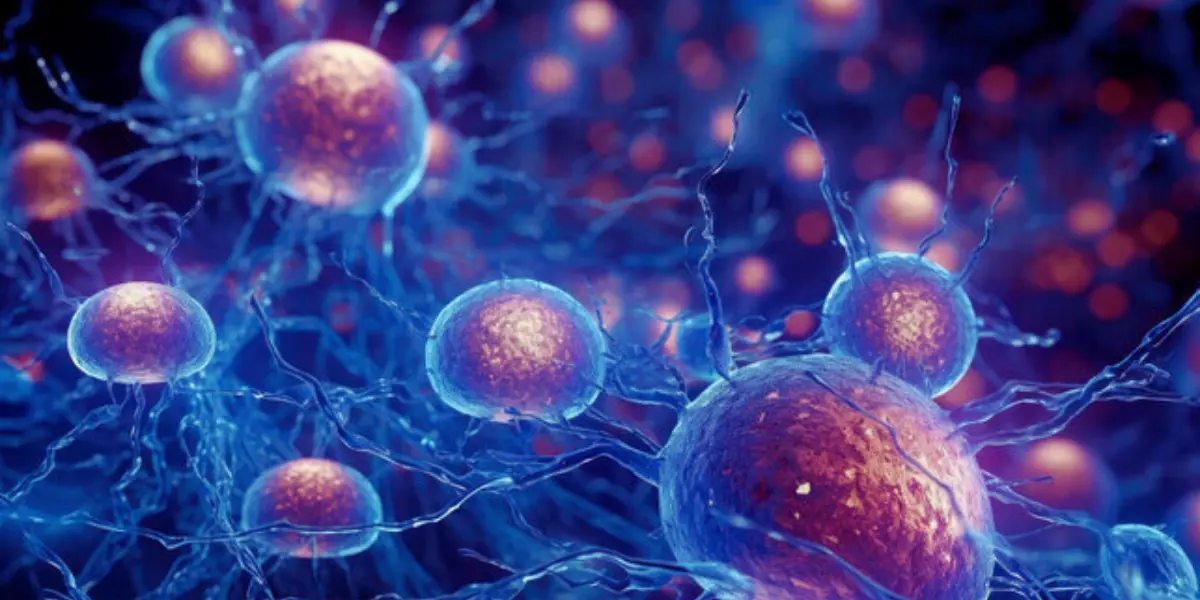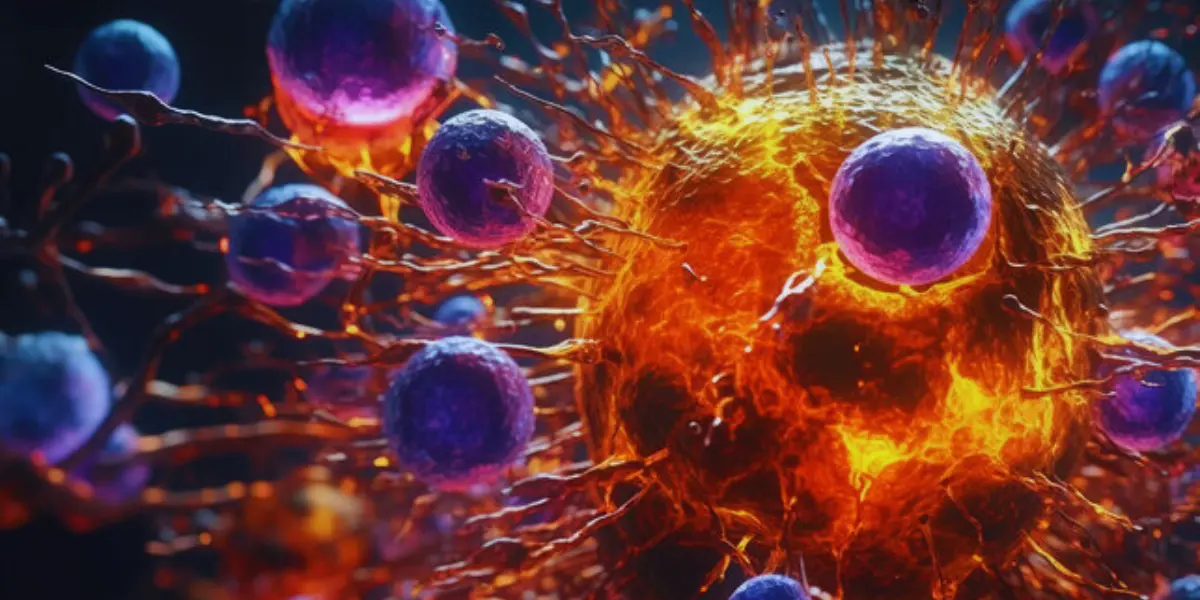Autophagy is a cellular process that plays a crucial role in maintaining the health and functionality of cells. Composed of the Greek words meaning “self and ”eating”, it is a cleansing process that can have various implications for bodily functions.
What Does Autophagy Do To Your Body? Benefits Of Autophagy
Autophagy is a natural process that breaks down and reuses old cell parts, enhancing cell efficiency, and is being studied by researchers for its potential role in disease prevention and combating.

- Cellular Cleanup And Recycling– Autophagy involves the formation of double-membraned structures called autophagosomes. These autophagosomes engulf the damaged or dysfunctional cells such as proteins. They then fuse with lysosomes which contain enzymes capable of breaking down the enclosed material. The process results in the recycling of cellular components, ensuring the removal of cellular waste.
- Adaptation To Stress– Autophagy is often triggered by various forms of stress which include the beginning of stressors such as nutrient deprivation, attack by pathogens, and oxidative stress. By removing damaged components, autophagy helps cells adapt to stress, promoting cellular survival during difficult conditions.
- Energy Regulation– Autophagy provides a source of energy during periods of nutrient scarcity. By breaking down cellular components, it generates amino acids and other molecules that can be used for energy production. This feature of autophagy helps it with metabolic flexibility, allowing cells to use internal resources efficiently in times of need.
- Cellular Renewal And Maintenance– Autophagy is instrumental in the turnover of cellular components contributing to the renewal and maintenance of cell structure. This process is vital for cellular health and longevity, preventing the accumulation of damaged structures that could compromise cellular function over time.
- Immune Function– Autophagy plays a role in the elimination of intracellular pathogens. It helps us surround and degrade the invaders contributing to the body’s defense mechanism. Autophagy is also involved in presenting antigens to immune cells, facilitating the immune system’s ability to respond to threats.
- Disease Prevention-Dysregulation of autophagy has been linked to neurodegenerative diseases, such as Alzheimer’s and Parkinson’s. Proper autophagic activity may help prevent the development of cancer by removing damaged cells and inhibiting uncontrolled cell growth.
- Longevity– Autophagy’s role in maintaining cellular health and preventing the accumulation of damage contributes to the potential for a longer and healthier life. Some studies suggest that enhancing autophagy may have anti-aging effects by promoting cellular resilience and reducing the impact of age-cellular damage.
Causes Of Autophagy
There could be multiple reasons why autophagy happens inside our body. These include-
1. Nutrient Deprivation– It is often triggered in response to nutrient scarcity such as during fasting or calorie restriction. When nutrients are limited, autophagy happens among the cells. When nutrients are limited cells initiate autophagy to break down and recycle cellular components providing a source of energy and maintaining cellular function.
2. Energy Depletion– Conditions that deplete cellular energy such as ATP can stimulate autophagy. Autophagy helps cells adapt to energy stress by generating amino acids and other molecules, necessary for energy production.
3. Oxidative Stress– High levels of reactive oxygen species generated during oxidative stress can also trigger autophagy. Autophagy is the process by which the damaged cells remove themselves from the system.
4. Endoplasmic Reticulum– Disruption of ER homeostasis leading to ER stress can activate autophagy. Autophagy helps clear misfolded proteins and damaged organelles associated with ER stress.
5. Protein Aggregation– Accumulation of misfolded proteins can trigger autophagy. It plays a role in clearing protein aggregates which are implicated in neurodegenerative disease.
6. Pathogen Invasion– In response to infection, cells can activate autophagy to eliminate intracellular pathogens. Autophagy contributes to the host defense mechanism by engulfing and degrading invading microorganisms.
7. Hormones And Growth Factors– Certain hormones and growth factors can regulate autophagy. For example,- Insulin and its associated aggregates often induce, while, glucagon and growth hormone promote it.
8. Exercise– Physical activity especially endurance exercises can trigger autophagy. It not only contributes to cellular health but also helps in adaptation to stress.
9. Calorie Restriction– Calorie restriction reduces overall calorie intake without malnutrition and is a potential inducer of autophagy.
10. Certain Drugs– Some pharmaceutical compounds, such as Rapamycin, are known to induce autophagy.

The Bottom Line
Understanding these triggers has implications for cellular health and potentially mitigating the risk of developing cell-related ailments such as cancer. However, autophagy is a complex process and can be varied based on the individual’s body and composition which can get varied results as well.